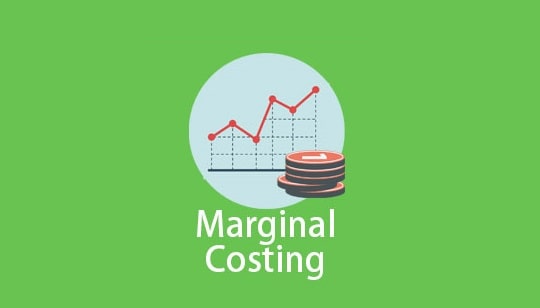Let’s say a business or the company is deciding to scale things up, which means they’d be producing more goods. But then they would need to figure out the change in the final cost when they decide to produce more products or units. And figuring out that is simply what we call Marginal Costing. But, at this point, if you are wondering what could be the possible benefits of using this method, then we’d advise you to stick a little longer with us here. That’s because here we will be taking a good look at the possible advantages and disadvantages of marginal costing. Alright, here we go.
Advantages Of Marginal Costing

Why not get started with the benefits of using this method, right? That way you’ll precisely know why exactly companies or businesses use marginal costing.
1. It’s Super Easy to Understand
So, here’s the deal with marginal costing: it’s super straightforward. Why? Well, it doesn’t mix up fixed costs with production costs. That means no headache of figuring out complicated costs. Basically, it’s a breeze to get and use.
2. Great for Making Smart Choices
Marginal costing is a real lifesaver when it comes to business decisions. Need to set prices or figure out where to use your resources? This method is what you’ll want in your corner. It’s like having a secret weapon as a manager.
3. Clear View of What’s Up with Profits and Costs
Now, let’s talk about understanding profits. With marginal costing, you get a crystal-clear picture of how sales going up or down play with your profits. This is super important, especially in India’s ever-changing market. You wanna stay on top of things, right? Well then, this method’s got your back.
4. Keeping Overhead Costs in Check
Now, let’s talk about overhead costs. You know, those annoying expenses that just seem to pop up? Well, with marginal costing, you’re basically dodging the headache of overhead absorption. And yeah, this is a big win! It makes managing those overhead costs a whole lot simpler, which is something you can’t praise enough.
5. Better Profit Planning? You Bet!
What marginal costing does next is pretty cool. It dives deep into the cost-volume-profit stuff. But here’s the deal: this is super important for planning your profits like a pro. It’s all about making those smart strategic choices that’ll boost your bottom line.
6. Cost Control
Alright, whether you are or not a businessman, you’d understand pretty easily that keeping the costs or expenses under control can literally do wonders for a business. Are we on the same page for that one? So you see, marginal costing is something that can really help out figuring out the standard costs, keeping the budget flexible, and also you would be able to focus on variable costs. All this stuff is pretty much a package for you to keep the costs in control as the owner or manager of the business or a company.
7. Pricing Policy Advantages
In a place like India, where the market’s always changing super fast, using marginal costing is a big help in figuring out the right prices for stuff, no matter what’s happening around.
Disadvantages Of Marginal Costing
Alright, so now you know what’s good with marginal costing, but what about the other side of things? Yeah, there are some points you might want to look into related to marginal costing that’ll give you a full picture.
1. Figuring Out Costs Can Be Tricky
You know, one big issue with marginal costing is splitting fixed and variable costs the right way. Often, this can get pretty complicated and it’s easy to make mistakes. And you wouldn’t want yourself stuck in a situation like that, it’d be really tricky.
2. Ignoring the Steady Costs
This method just kind of skips over the steady costs when it comes to pricing products and figuring out stock value. This can really lead to guessing too low and giving the wrong idea about costs.
3. What’s Up With Stock Values?
So, when you leave out the steady costs, how much the stocks are worth can really be affected. More often than not, this means you end up guessing the stock values way too low.
4. The Catch with Cost-Plus Contracts
You know, when it comes to contracts where you gotta cover all your costs, like those cost-plus ones, marginal costing sometimes just doesn’t cut it.
5. Overlooking the Clock
And here’s another thing, this method kinda misses out on how important time is in making stuff. This oversight can lead you to make choices that don’t really make sense in the real world.
6. Just Thinking About Today
Now, if you’re just looking at the here and now, marginal costing might seem like your go-to. But let’s be real, it’s missing the bigger picture. For your business to really thrive in the long run, you need a strategy that looks way beyond just today.
7. Getting the Wrong Idea About Cost Recovery
So, this method can kinda trick you into thinking you’ve got the whole variable and fixed costs recovery from sales revenue thing figured out.
8. Issues with Pricing
Now, when we’re talking about marginal costing, it can lead to pricing that doesn’t quite hit the mark in covering all the costs. This is super crucial, especially when the market’s steady and unchanging.
9. Guessing the Cost of Changing Stuff
Think about it, the idea that the cost of stuff you need keeps the same rate, even when you’re making a lot or a little, doesn’t always hit the mark. This gets especially tricky when you’re changing how much you produce big time.
10. Not Everyone’s Cup of Tea for Official Reports
And here’s another thing, using this method for your official money reports isn’t a go-to for everyone. Tax people don’t really give it a thumbs up, which, let’s face it, is a bit of a bummer, especially in places like India.
Conclusion
There you have it. We tried our best to cover every aspect of marginal costing which is in favor as well as opposition to it. This is the best way to form an informed conclusion of your own, and that’s what we intended today with this post.

Meet Suhas Harshe, a financial advisor committed to assisting people and businesses in confidently understanding and managing the complexities of the financial world. Suhas has shared his knowledge on various topics like business, investment strategies, optimizing taxes, and promoting financial well-being through articles in InvestmentDose.com


